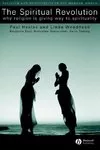
-
 Anglický jazyk
Anglický jazyk
The 1560 Defined Geneva Bible
Autor: David L. Brown
The entire Geneva Bible was released in 1560. It was innovative in both text and format, and quickly became the household Bible of English speaking people. It was the first English Bible to have modern verse divisions as well as modern chapter divisions.... Viac o knihe
1 kus skladom u vydavateľa Posielame do 7-10 dní
76.32 €
bežná cena: 84.80 €
O knihe
The entire Geneva Bible was released in 1560. It was innovative in both text and format, and quickly became the household Bible of English speaking people. It was the first English Bible to have modern verse divisions as well as modern chapter divisions. It was the first Bible to use italics to indicate words not in the original language and the first Bible to change the values of ancient coins into English pound sterling equivalents. It was also the first to use plain Roman type, which was more readable than the old Gothic type, and it was in a handy quarto size for easy use. With prologues before each book, extensive marginal notes, and a brief concordance, the Geneva Bible was in fact the first English "study Bible." Between the Geneva Bible's first edition of 1560 and its last edition in 1644, 160 editions, totaling around a half million Bibles, were produced. And for the first time common people could not only understand the words in the Bible, they could actually own one. Its widespread use first solidified the English language among the common people, not the 1611 King James Bible as many assume. Actually, the King James Bible required decades to surpass the popularity of the Geneva and supplant it from the hearts of the English speaking world. In fact, the Geneva Bible was the principal English Bible initially brought to American soil, making it the Bible that shaped early American life and impacted Colonial culture more than any other. In this edition we have chosen not to include any commentary and simply allow the strength of the translation to come through to the reader. Yet because 450 plus years have elapsed since the original Geneva Bible, we have modernized the spelling of words. We have also bracketed and defined words and terms which are no longer commonly used or are so altered in their meaning as to be unfamiliar today. Further, this work is not intended to replace the King James Bible, but to show how close the Geneva translation is to the King James Bible. These two Bibles are translated from the same Traditional Hebrew/Aramaic and Greek Texts. So, why was the King James Bible needed? It was because the marginal notes were "very partial," King James said. And they were. They were completely Calvinistic and many considered the notes as a part of divine revelation, which they are not. On January 17, 1604, the motion was made and carried "…that a translation be made of the whole Bible, as consonant as can be to the original Hebrew and Greek; and this to be set out and printed without any marginal notes." Only cross references, and word definitions and occasional variant reading were allowed. After 85 years of and six English Bible translations (Tyndale, Coverdale, Matthews, Great, Bishops, Geneva) virtually all English Bible translation efforts cease for 274 years with the publication of the King James Bible. The King James Bible is the most popular book of all times. It has been in constant publication since 1611 with an estimated 6 billion copies being published. The Geneva Bible, which is virtually unknown today, played an important part in American History. It was our desire to modernize the spelling and define the archaic words so the reader easily read and see why it holds such an important place in American History.
- Vydavateľstvo: The Old Paths Publications, Inc.
- Rok vydania: 2017
- Formát: Hardback
- Rozmer: 260 x 208 mm
- Jazyk: Anglický jazyk
- ISBN: 9780998777856












